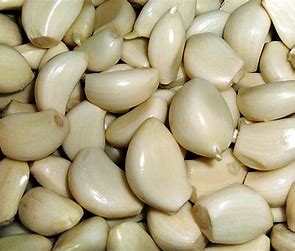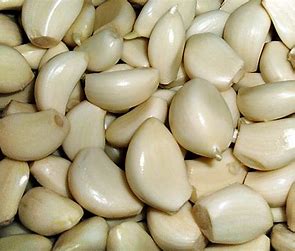
Garlic’s Potential in Fighting Human Viruses: What Science Says
In the quest for natural remedies to boost our immune systems and fight off illnesses, garlic has long been a popular choice. But can this pungent bulb really help in the battle against human viruses? Let’s dive into what scientific research tells us about garlic’s potential antiviral properties.
The Power of Allicin: Garlic’s Secret Weapon
Garlic contains a compound called allicin, which is released when garlic cloves are crushed or chopped. This sulfur-rich compound is believed to be responsible for many of garlic’s health benefits, including its potential antiviral effects.
Key Points:
- Allicin is formed when garlic is crushed or chopped
- It’s a sulfur-containing compound with various health properties
- Allicin is unstable and breaks down quickly, which can affect its potency

Garlic vs. Viruses: What Studies Show
While garlic has been used in traditional medicine for centuries, modern scientific research is still exploring its effects on human viruses. Here’s what we know so far:
- Common Cold: Some studies suggest that regular garlic consumption may reduce the frequency of colds. A 2001 study published in “Advances in Therapy” found that participants taking garlic supplements had fewer and shorter colds compared to those taking a placebo.
- Influenza: In laboratory studies, garlic extract has shown promise in inhibiting the growth of influenza A and B viruses. However, more research is needed to confirm these effects in humans.
- Herpes Simplex Virus: Some in vitro studies have indicated that garlic extract may have inhibitory effects on herpes simplex virus types 1 and 2. Again, human trials are needed to confirm these findings.
- HIV: While some laboratory studies have explored garlic’s potential against HIV, there’s currently no evidence to suggest it’s an effective treatment for this virus in humans.
How to Incorporate Garlic into Your Diet
If you’re interested in potentially boosting your immune system with garlic, here are some ways to add it to your diet:
- Add fresh, minced garlic to your cooking
- Try roasted garlic as a spread
- Consider garlic supplements (consult with a healthcare provider first)
Remember, for maximum benefit, crush or chop garlic and let it sit for a few minutes before cooking to allow allicin to form.
Conclusion
While garlic shows promise in laboratory studies and has a long history of use in traditional medicine, more research is needed to definitively prove its effectiveness against human viruses. It’s important to note that garlic should not be used as a replacement for proven medical treatments or preventive measures like vaccines.
Incorporating garlic into a balanced diet may offer potential health benefits, but it’s just one piece of the puzzle when it comes to maintaining a strong immune system. A healthy lifestyle, including regular exercise, adequate sleep, and a nutrient-rich diet, remains the best defense against viral infections.
Always consult with a healthcare professional before making significant changes to your diet or starting any new supplement regimen, especially if you have existing health conditions or are taking medications.